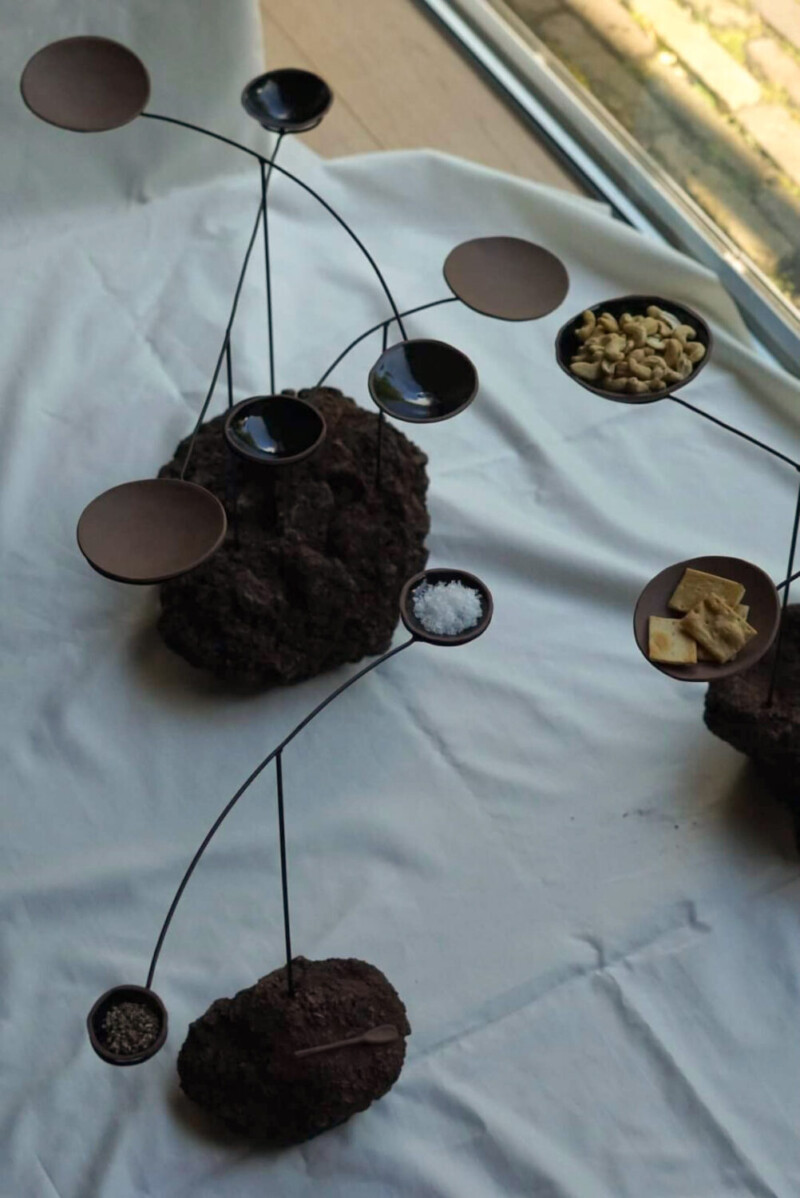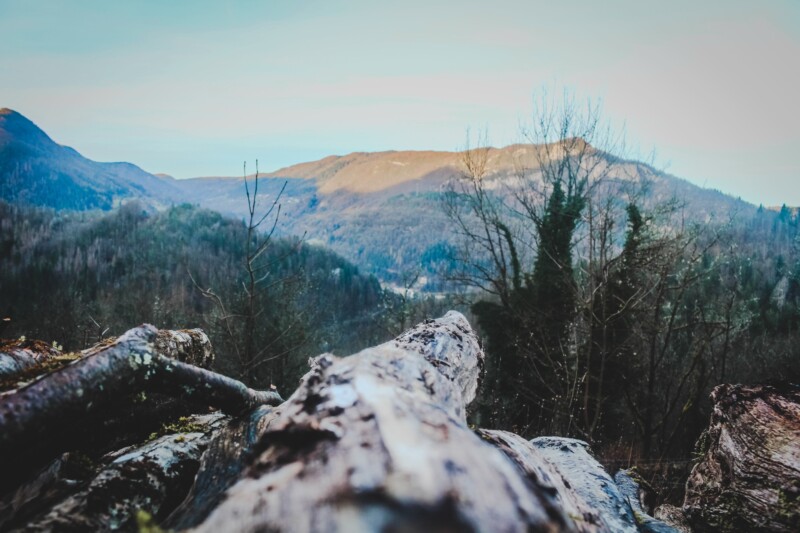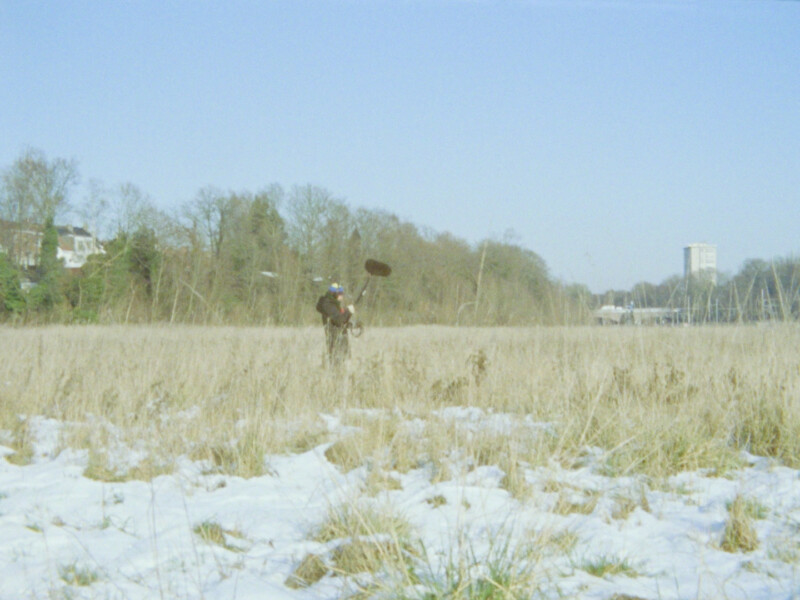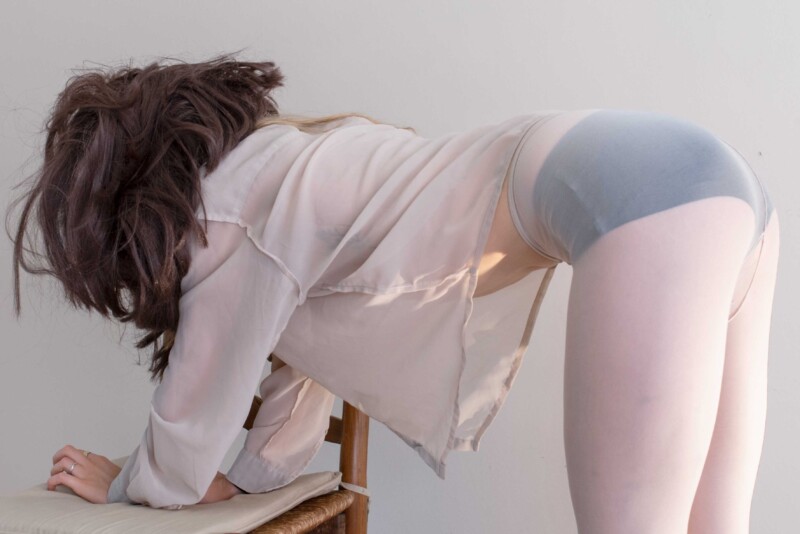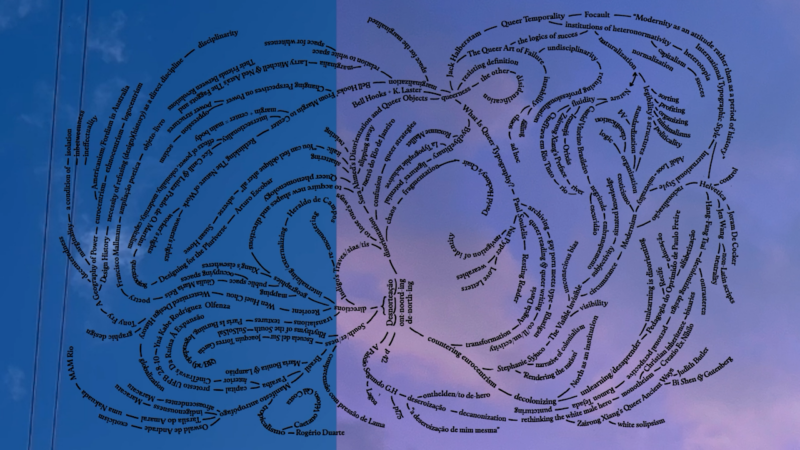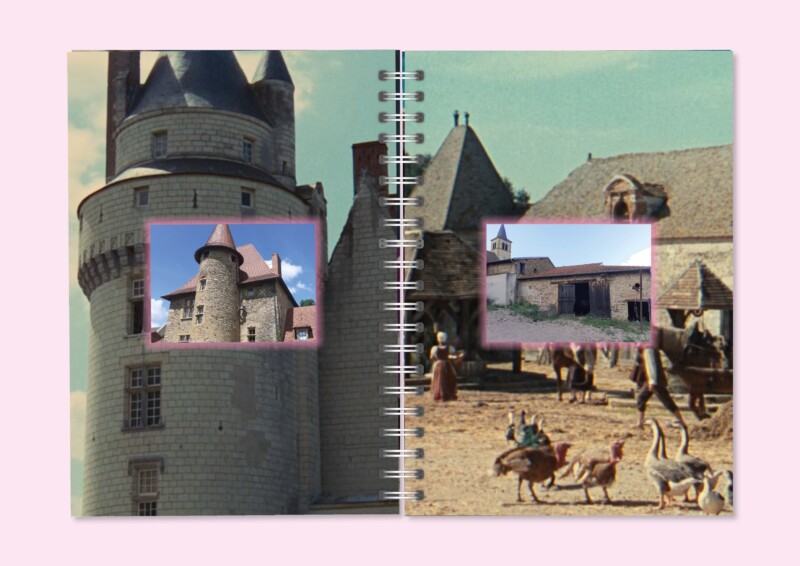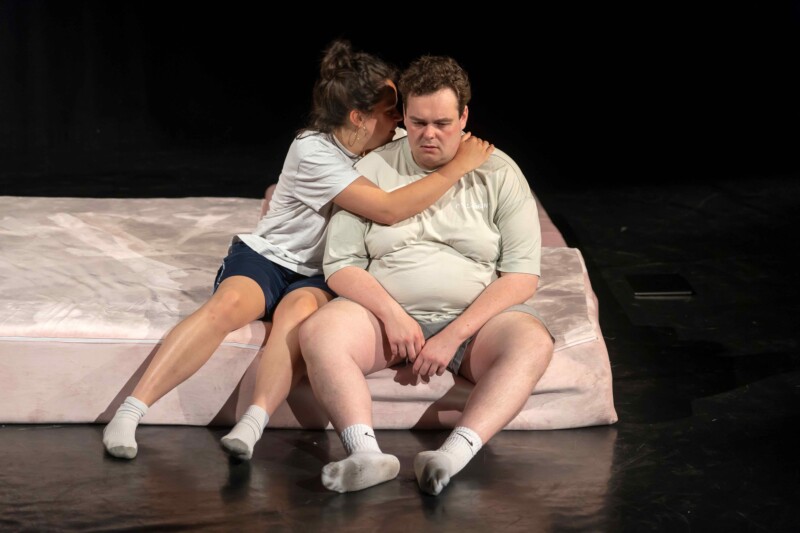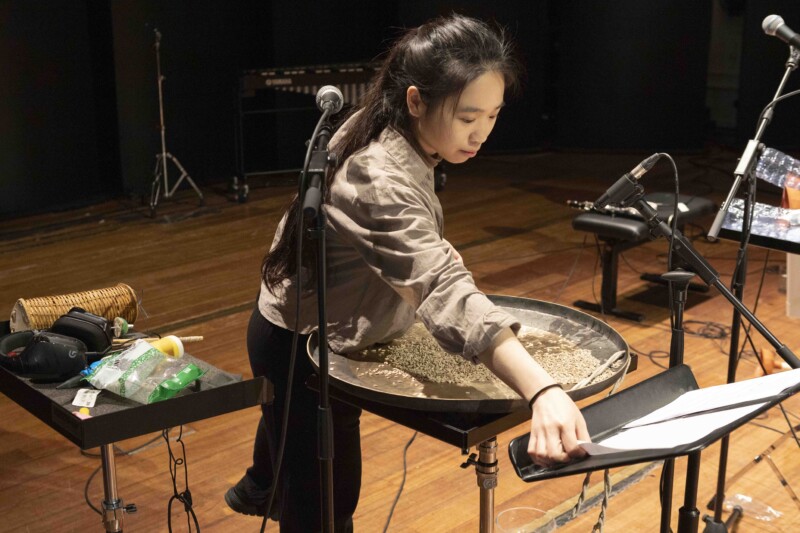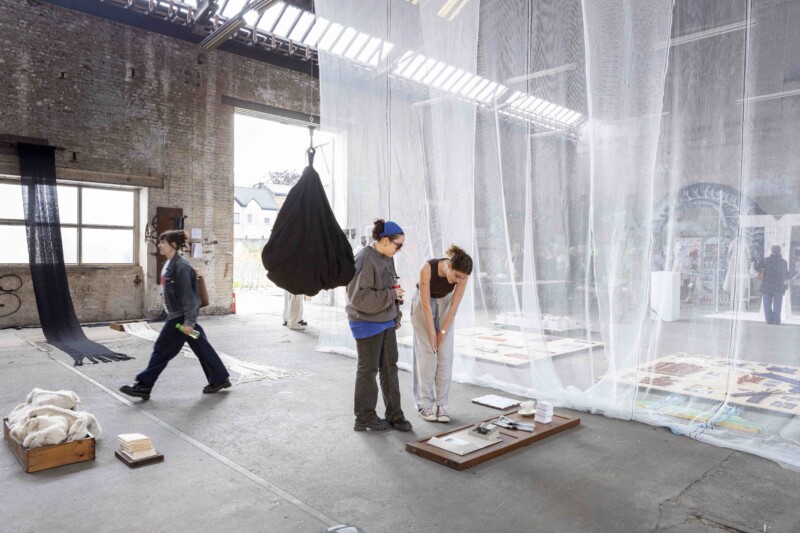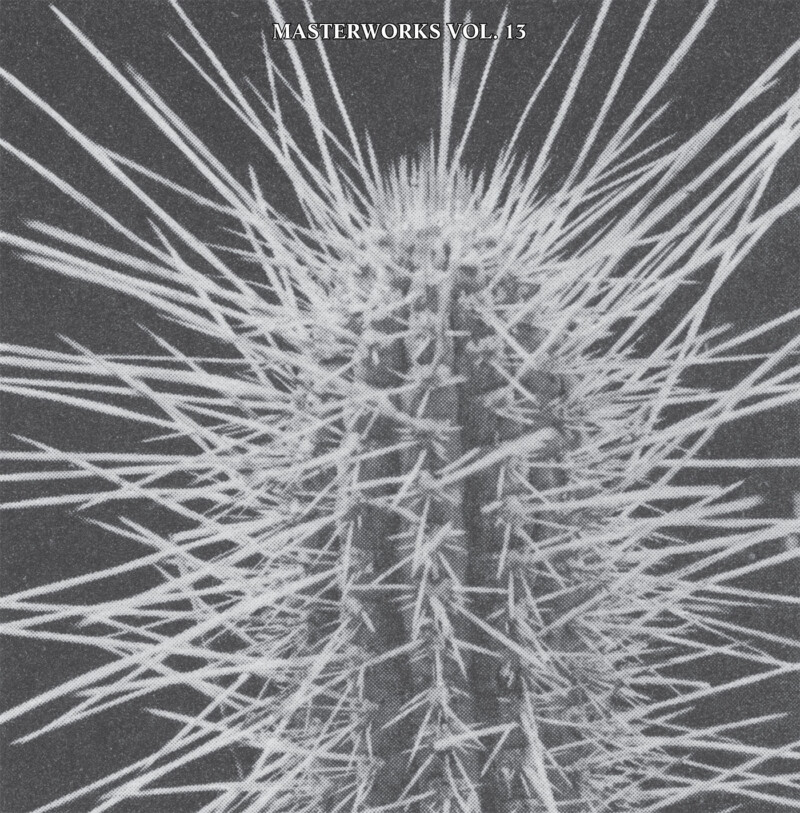Thibault Goudket
Regulating emotions through music

You can find Thibault Goudket on stage as a drummer with the likes of Cesar Quinn, Jennifur and Jakomo but for his final exam in pop music, he left his drum kit at home. He filled De Centrale with a compelling, atmospheric set and immersive projection. It was a stopover (or a starting shot) in a highly personal journey in which the regulating of emotions through music plays a major role.
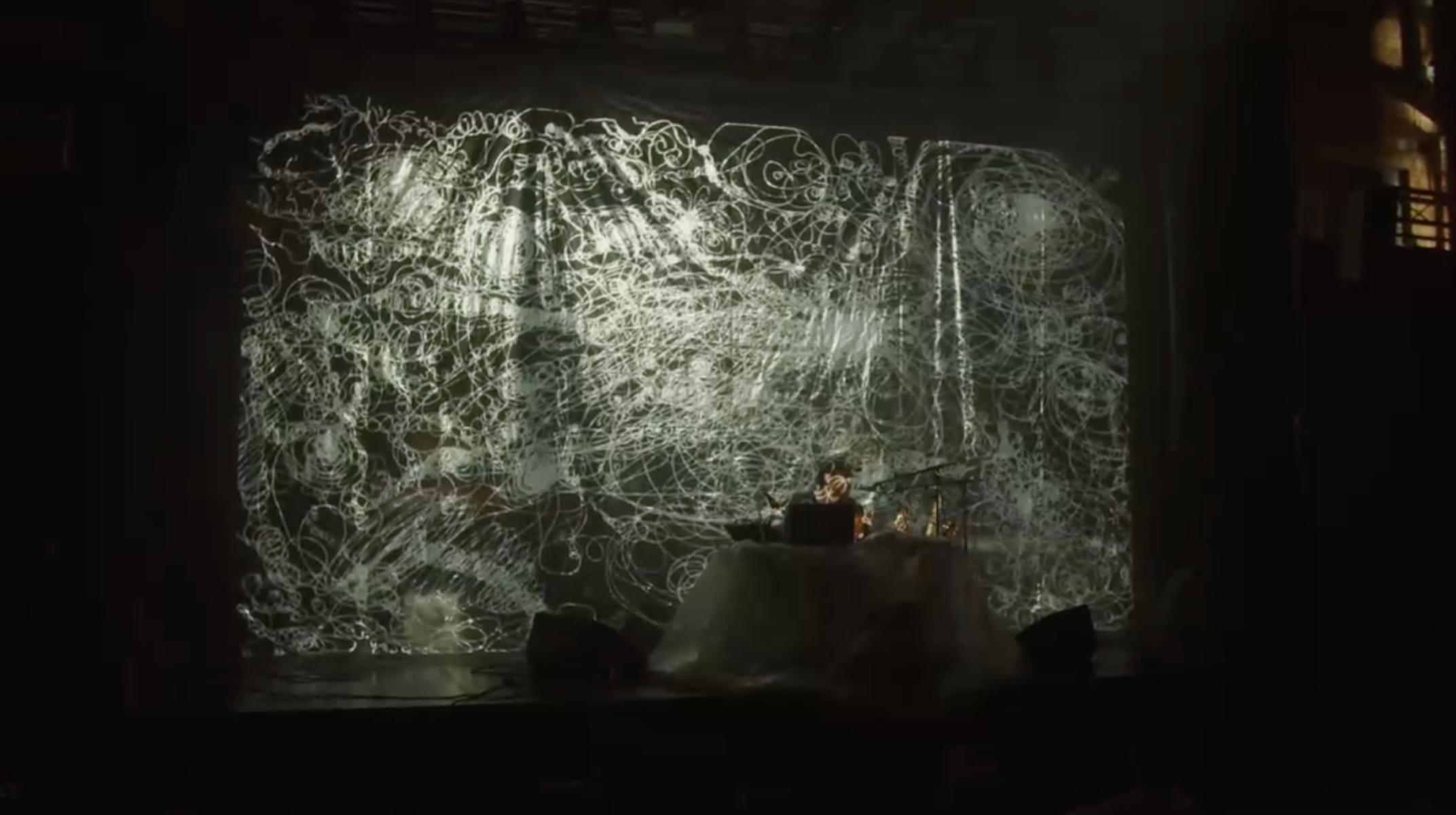
ONRUST
Which instruments did you have with you on stage?
THIBAULT GOUDKET
I mainly played guitar and bass. I sang, I had a small synthesizer with me and a lot of music came from my computer via Ableton. There was one song that had drums in it, but that was pre-recorded and electronic. That was the only thing.
ONRUST
The key question: why not play drums?
I play drums in three projects. That music is all written in advance. I am a part of that creative process, but I am not the author of those projects.
I felt it was important that when I graduate that the music I play is personal. In my thesis, I was very much concerned with the relationship between music and emotion. Why is it that music is able to release or reawaken so many feelings and emotions? The answer to this question was bringing my own music.
I have been making my own music for four years now. It started at a time when I wasn't feeling very well mentally. Making/recording/playing music gave me breathing space. I was always looking for quietness; drums are a loud instrument after all. Of course you can play them quietly, but I haven't yet figured out how to translate the atmosphere I created with my master project to drums. When they asked me at the beginning of the master's what I wanted to do, I thought it would be cool to come and play my own music. The music reflects very well who I am as a person. It's vulnerable and I also make myself vulnerable by playing it alone and not hiding behind my drum kit. That is a safe place, as a drummer you are always in the background and now it was completely the opposite. So for me it was right to do that and explore how to bring that music live.
I also thought about asking others to play with me and my teachers did ask if I couldn't do some drumming. I tried it, put my drum kit next to my laptop in my room. But that didn't work out, because I made the music with a focus on atmospheres, feeling and musical colours. Last year after my first master's exam, my teachers were very happy and then I asked if it was possible that I didn't play drums.
I am very grateful that I was allowed to do it. I like drumming a lot, but I am also into recording music. Working in Ableton and working that out for a live setting, I really enjoy that technical aspect. Sometimes I also do live mixing. I feel like I am more than a drummer.
ONRUST
What do you prefer: making music and recording or playing live. Or is it one process for you?
Gosh, they are two separate things though. When you're on stage, everything comes together. I had never converted home-recorded music to a live set before. You start tinkering with it and that's very inspiring. So new ideas keep popping up although you have to be strict and make choices. It's very technical, but you have one long session in Ableton with all the recordings. If you want to use Ableton for a live setting you have to work completely differently, a lot of programming. You cut and paste and figure things out, you find you can't play something how you recorded it. You look for another way. My music doesn't sound quite like in my recording. I also did choose that there is still some improvisation in it. I will never play the same thing. If I play it every day for a month, it wouldn't be the same every time.
ONRUST
Your song on the Masterworks record ‘All Of This Is Taking So Long’ lasts 2m20s, but in your live set, all the songs flow into each other.
That was the intention, to do the performance in one go. I was glad the audience realised that it was going to take a while for them to applaud because I glued everything together and there wasn't really room for applause. This would also have taken away the magic of my performance. I wanted it to be long and for people to experience this. With applause, you break a moment in your set, something I definitely wanted to avoid.
ONRUST
Will you continue to develop your own music?
That's the intention. First, I'm going on a trip and I will take some distance from my music. After that, I want to compile everything and contact people. I think it would be a lot of fun to start playing this live. Although I'm also really looking forward to getting back behind my drum kit.
ONRUST
How important is the relationship between the image of the projection and the music?
My brother made the images. Normally he makes static drawings, but I always saw movement in them. I made him listen to the music first. He could relate to it and then I suggested trying that. For me, it's important that something happens on stage. I thought it would be interesting to add an extra visual aspect, given that I myself was hidden behind my computer. My brother drew live and was very stressed. But for me too, things didn’t go as planned. It felt right to do this performance with him and I was very happy with the end result.
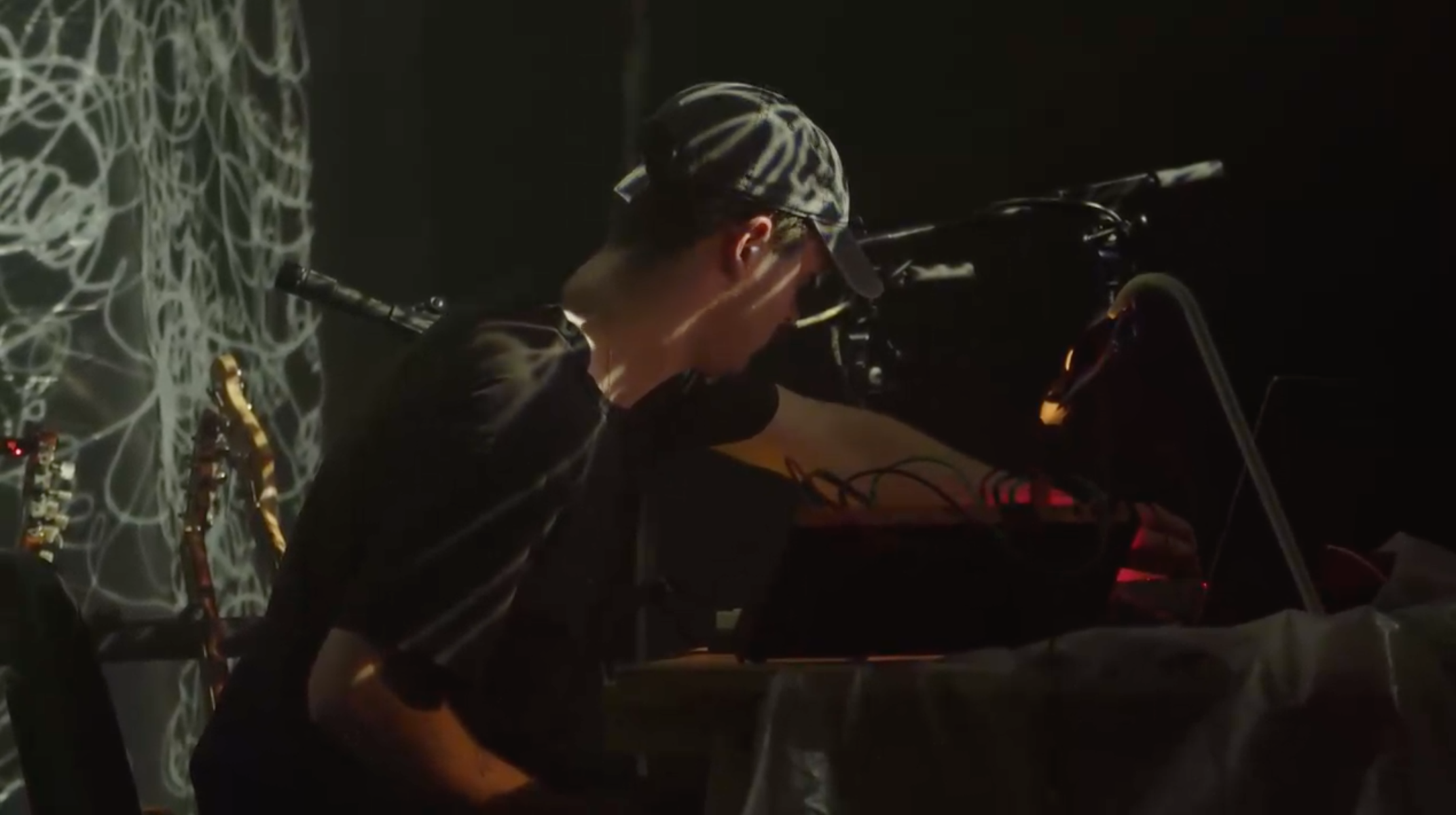
ONRUST
For you, what is the big advantage of studying music at a conservatory?
I am not the best theory student. I studied for a total of six years, first doing jazz in my bachelor's and switching to pop for my master's, a choice I don't regret. I found it really blissful. There are flaws, but you have that everywhere. Looking at how it ended up for me now, I did get a lot out of it. What I did for my master project, I would never have done without that programme. I had time for it now and was surrounded by the right people, teachers and friends. I have the rooms to rehearse and material. That is a great luxury that should not be forgotten. A programme like this is a privilege.
In your first year, you go to school with your cymbals on your back and you know ‘today I'm going to play music’. That is truly a pleasure. Especially in your masters, where there are less theory subjects and you practice more. You are challenged to step outside your comfort zone for certain subjects and collaborate with people from other disciplines. If you handle it well, that can be super fun and I handled it well (laughs). I also found my thesis really fun and informative to write. I was able to talk to interesting people. You have to get as much out of it as you possibly can, especially in your master's it’s up to you.
ONRUST
Do you have any interests or hobbies besides music?
I run a lot, I’ve become sporty in the last year. For my job, I also cycle a lot. I love being in nature and should do it more. Most of my life is dedicated to music, which I don't mind at all. But it is important to distance myself from time to time and not lose myself. Even with my master project, I really want to work on it, but I'm putting it to rest for now. I think it's very good in life to let things breathe.
ONRUST
Do you have any message for the future or for your fellow students?
For me, it is very important to stay as close to yourself as possible. It's cliché, but honesty is still appreciated. You should not be afraid to be emotional or vulnerable, there is a lot of beauty in that.
What I do want to say, the title of my thesis is ‘the emotion-regulating and connecting function of music’. I wrote a lot about the ear, music and how it interacts with the brain. Then I had conversations with music therapists and so, also through other musicians who have written about this (including Pauline Oliveiros, cs), I started looking for how it is that music has that power to release those emotions. I conclude my thesis by saying that there is no one-size-fits-all answer, and I really liked when my judges said after the performance that they experienced an emotion or feeling that they could not describe. Hearing that was a full circle moment for me.
Tekst: Claire Stragier



















